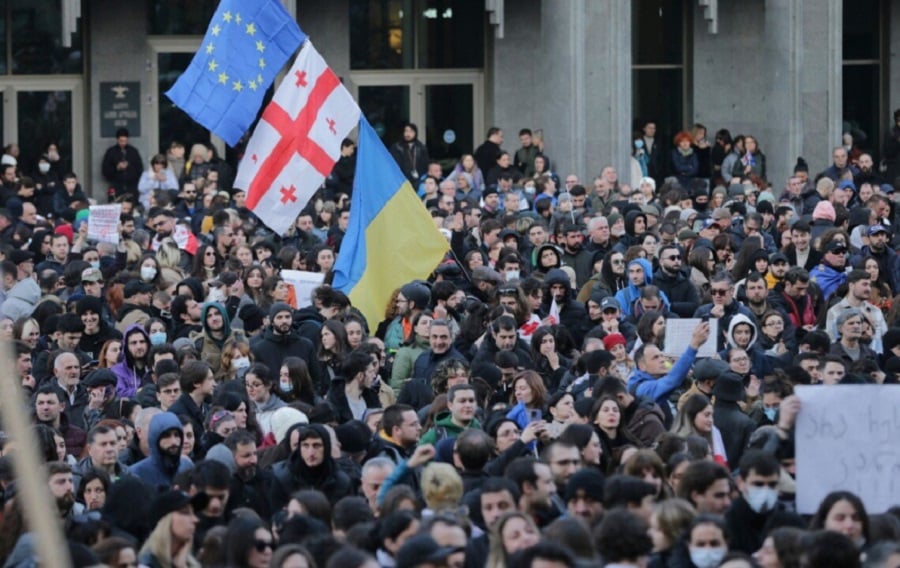ACNIS reView from Yerevan. Following a brief period of post-election unrest in Georgia, when public discontent seemed to be subsiding, the internal political situation has once again deteriorated. Tbilisi is in turmoil. This has opened up a significant field of study for psychologists, social scientists, political strategists, and anthropologists. Senior professionals in these disciplines, particularly anthropologists, have accumulated extensive practical experience in such situations and are skilled at influencing human behavior and psychology across various countries.
Recently, it has become evident that even the simplest tactics can regularly inspire crowds and elevate their street-fighting spirit. This is achieved through actions such as kissing in front of policemen, offering flowers to the same officers, chanting repetitive slogans (regardless of their substantive meaning), loud music, singing, and other similar performances. These scenarios are remarkably similar, almost “twin” in nature, to those observed during the events in Ukraine, Armenia, and the Arab countries during the Arab Spring, and now, for the second time, in Georgia.
Judging by these patterns, it is not difficult to deduce that the projects behind revolutionary movements in various states, or at least most of them, are guided by roadmaps developed in a common center. This central hub coordinates the implementation of such movements. To illustrate, one does not need to look far—consider the parallels between “Yerevan 2018” and “Tbilisi 2024.” Both were accompanied at certain stages by dramatic imagery, such as wreaths and coffins. In Armenia, the 2018 movement culminated in the now-famous meeting between the ousted Serzh Sargsyan and Nikol Pashinyan, who carried a backpack. Shortly afterward, Armenia’s third president resigned, famously stating, “Nikol was right; I was wrong.”
The phenomenon of crowd psychology is best described in the works of Gustave Le Bon, the French polymath, and Sigmund Freud, the Austrian neurologist and founder of psychoanalysis. More than a century has passed since their analyses, during which science has advanced dramatically. Yet, the psychology of the mob has remained largely unchanged. The student uprisings of 1968 in France and Germany served as fertile ground for testing tactics in what could be considered just struggles. Unfortunately, the crowd remains incapable of learning from its own mistakes—or those of others.
Read also
At this point, it should be evident who the authors, commissioners, and supporting forces behind Armenia’s 2018 “revolution” were.
However, these actors should not be blamed: their actions are part of the rules of the geopolitical game. In fact, it must be acknowledged that they execute their roles with remarkable skill. If blame is to be assigned, it should fall on our national elites, who have repeatedly failed to unite their people around the imperatives of state interests or to work consistently toward those goals. This, in essence, was the situation in Armenia in 2018 and now in Georgia in 2024.
The only difference is that the question of a “suitable” leader was resolved in Armenia, while in Georgia, they are still searching for a “Georgian Nikol.” Armenia has no shortage of such candidates; at least 70 potential contenders can be found in the National Assembly alone. If necessary, we are always ready to lend a helping hand—after all, what are neighbors for?




















































